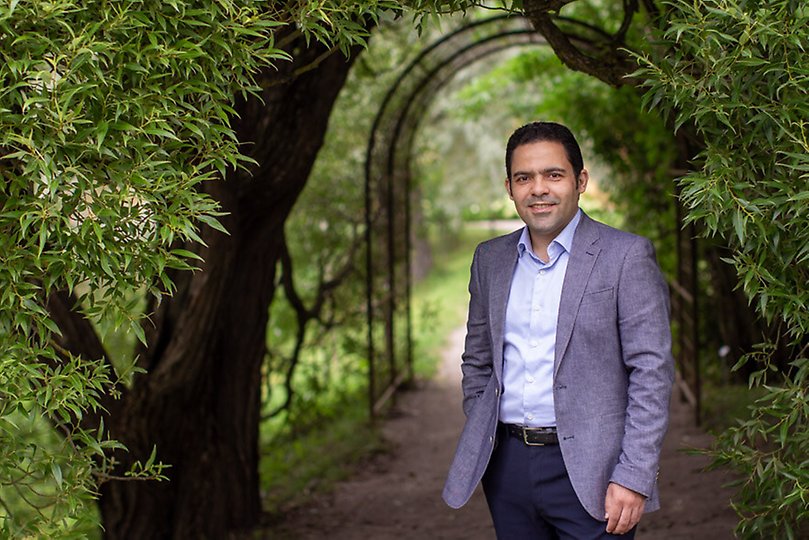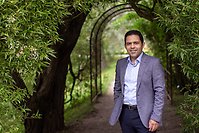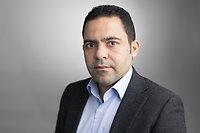Assem Abu Hatab is an applied economist with broad empirical interests, focusing on the economics and sustainable management of food systems and their interlinkages with sustainable development in African and low-income countries. He holds a PhD in Economics and has studied Agricultural Economics, Agricultural Sciences, and Development Economics at Suez Canal University (Egypt), Northwest A&F University (China), and the Norwegian University of Life Sciences (Norway).
Previously, Assem has held various positions, including Coordinator of Global Development Projects at the Faculty of the Natural Resources and Agricultural Science in the Swedish University of Agricultural Sciences (SLU), Senior Researcher at the Centre for Middle East Studies of Lund University, Postdoctoral Fellow at the Watson Institute for International Studies, Brown University (USA), Postdoctoral Researcher at the Department of Economics, SLU, Lecturer at the College of Economics & Management, Northwest A&F University (China), and Assistant Researcher and Lecturer at Suez Canal University (Egypt).
His ongoing research projects focus on understanding risk perception and management among food chain actors in the face of climate and environmental changes, economic shocks, and geopolitical conflict. Currently, Assem leads a large interdisciplinary project funded by the Belmont Forum, which aims to develop integrated monitoring and modeling approaches for the mitigation and adaptation of climate hazards and migration in Madagascar. He is also leading a study funded by the United Nations' Food and Agriculture Organization (FAO) to assess the long-term impacts of the COVID-19 pandemic on livestock systems in low-income countries. Additionally, he is a co-Principal Investigator for an EU project that assesses the impact of two technologies for selective harvest and preventive site-specific spraying in cereal crops. Assem is also co-leading a project funded by the Swedish Environmental Protection Agency (SEPA) on the environmental impacts and policy options for a sustainable Swedish food system. Furthermore, he is a co-Principal Investigator for an impact evaluation of the Parish Development Model of the Ugandan government. Another area of his research focuses on international agricultural trade and trade policy analysis, particularly the determinants and competitiveness of small- and medium-sized enterprises in the agri-food sector on the international market.
Assem has coordinated and participated in several national and international projects and received funding from various organizations, including the Swedish Research Council (VR), the Swedish Research Council for Sustainable Development (Formas), the Swedish Environmental Protection Agency (SEPA), the EU (e.g., EU2020, Erasmus+, and ERA-NET COFUND ICT-AGRI-FOOD), the Belmont Forum, the Norwegian Research Council, the Arab Fund for Economic and Social Development, and the Egyptian Science and Technology Development Fund.
He has also provided consultancy services to international development and research organizations, including the United Nations Food and Agriculture Organization (FAO), Consortium of International Agricultural Research Centers (CGIAR - Livestock Program), the World Bank, and the United Nations Conference on Trade and Development (UNCTAD).
In 2023, Assem was selected as a member of the drafting team of the report of the High-Level Panel of Experts on Food Security and Nutrition (HLPE-FSN) on "Strengthening urban and peri-urban food systems to achieve food security and nutrition in the context of urbanization and rural transformation." He was also appointed as a Coordinating Lead Author for the special report of the Mediterranean Experts on Climate and Environmental Change (MedECC) on the climate-water-energy-food-ecosystems nexus. In 2022, he was appointed by the Government of Sweden as a member of the Scientific Advisory Board of the Swedish International Development Cooperation Agency (Sidas vetenskapliga råd). From 2018 to 2022, Assem served as a lead author for the 6th IPCC Assessment Report. In 2013, Assem was elected as a member of the Arab-German Young Academy of Sciences and Humanities. He was also awarded the Distinguished Scholar Award from the Arab Fund for Social and Economic Development in 2013.

 External link, opens in new window., Sweden
External link, opens in new window., Sweden External link, opens in new window.
External link, opens in new window. External link, opens in new window. (HLPE-FSN) on “Strengthening urban and peri-urban food systems to achieve food security and nutrition in the context of urbanization and rural transformation”.
External link, opens in new window. (HLPE-FSN) on “Strengthening urban and peri-urban food systems to achieve food security and nutrition in the context of urbanization and rural transformation”. External link, opens in new window. (AR6), the Intergovernmental Panel on Climate Change (IPCC)
External link, opens in new window. (AR6), the Intergovernmental Panel on Climate Change (IPCC) 10.05 MB
10.05 MB
 5.47 MB
5.47 MB
